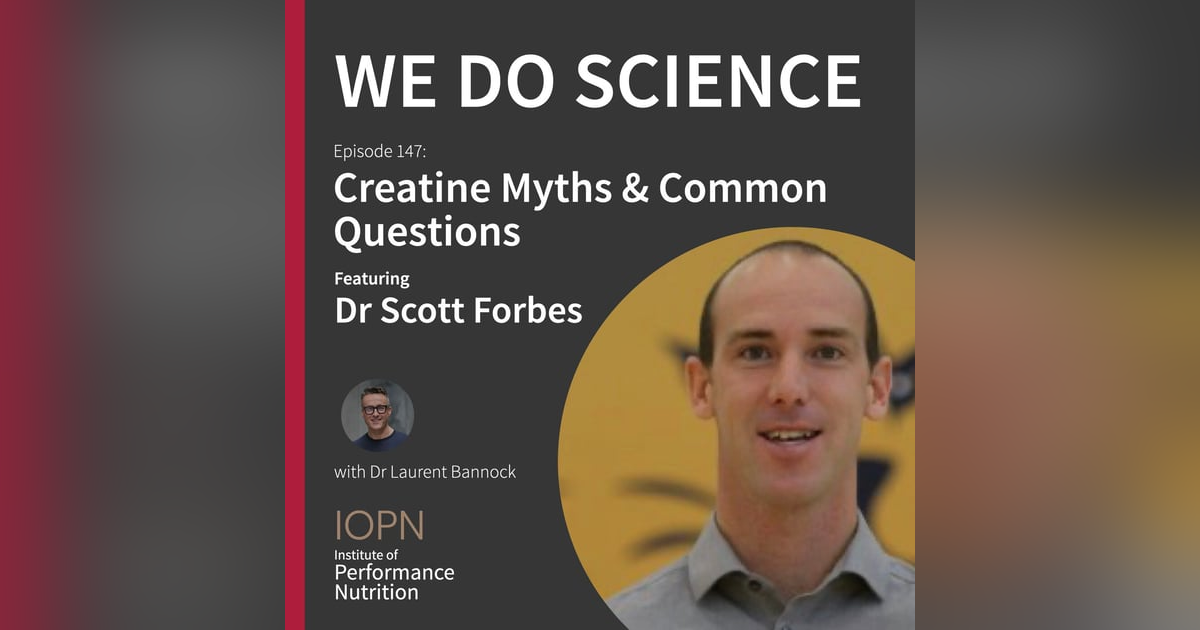Nov. 6, 2020
"Creatine Myths and Common Questions" with Dr Scott Forbes PhD

Episode 147 of the Institute of Performance Nutrition's "We Do Science" podcast! In this episode, I (Laurent Bannock) discuss "Creatine Myths and Common Questions" with Dr Scott Forbes PhD (Brandon University, Canada).
Discussion Topics Include:
- Creatine: a brief overview of the science and the myths
- Why creatine has become such a popular supplement
- The evidence base behind creatine use in exercise science and health promotion (i.e. muscle mass, strength and power, age, gender, clinical uses etc)
- Safety profile of creatine to include risk of kidney damage, water retention etc
- Creatine Monohydrate vs. other forms off creatine
- Creatine dosing strategies
Podcast Episode Transcript: Download PDF Copy
Key Paper(s) Discussed / Referred to:
- Common Questions and Misconceptions About Creatine Supplementation: What Does the Evidence Really Show? - JISSN / In Press (will add link when available)
- International Society of Sports Nutrition position stand: creatine supplementation and exercise - JISSN
Related Podcast Episodes:
- #141 - "Creatine Monohydrate: Exercise, Sport, and Health Applications" with Professor Darren Candow
- #73 - 'Creatine for Health & Performance' with Professor Eric Rawson
- #16 - 'Creatine' with Professor Craig Sale
Check out our other podcasts, publications, events, and professional education programs for current and aspiring sports nutritionists at www.TheIOPN.com and follow our social media outputs via @TheIOPN







